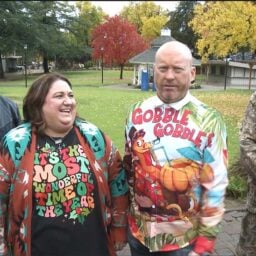wSome leaders are great coaches, but certainly not all. Many coaches are great leaders, but too many aren’t. The thing most people don’t realize is how different the two are and how rare it is to find someone who is both.
Just to confuse things even further, might I point out that sometimes the best coaches are the best leaders by recognizing that they don’t need to do any coaching.
For example, take the high school baseball coach who is blessed to have a clear and obvious major league prospect pitcher on his team. A great coach will leave that player alone entirely and recognize that all the pitcher needs to do is throw more…on his own, left to his own devices. The player will learn as he goes, on his own, and doesn’t need to be told how to do things because he’s already better than the coach ever was, will, or could be…just let the pitcher pitch. Meanwhile, that same coach, if he’s truly a great one, will work intensely with his three “worst” pitchers…and if he’s really smart, he’ll tell them to watch what that major league prospect does and try as best they can to emulate it. That’s not just great coaching, that’s leadership.
A lot of amateur golfers decide, after learning the game on their own, to get lessons from a pro. The overwhelming majority of PGA professionals will begin those lessons by completely changing the golfer’s swing in every way, rather than taking what the golfer has created and making it better…these are terrible coaches.
Therapists are the same way…which is why it’s so hard to find a good one. A great therapist takes the patient and speaks to them where they are, hoping to guide them to a new place. A terrible therapist simply commands that you do what they say, the way they tell you to, and it leads to utter failure.
Where is this all coming from, you may ask? We get a consistent amount of emails asking me about adding Queenie and Kyle to the show and how the process works, specifically how I “teach” them to be great broadcasters.
The answer is that I don’t, because I recognize that I don’t need to. I don’t coach them, I lead them.
I have said many times, unapologetically, that one of the very few things that I am good at is that I can recognize talent; I know it when I see it. Once I recognize it, my approach is the same as that high school baseball coach who has a major league prospect on his roster…let them throw. I believe in immersion therapy…throw them into the deep end of the pool and force them to learn to swim. The only time I step in is when they’re drowning.
We live in a society that doesn’t want to feel pain, humiliation, and failure. The problem with that approach is that pain, humiliation, and failure are, no matter how hard we try to make this not true, a part of life. And the more people feel and experience those things, the better they get at not only recovering from them but avoiding them moving forward.
A great leader recognizes great talent, gives them whatever tools they need, and then gets out of their way and allows them to grow and thrive, while also realizing that they are going to screw up, say and do stupid things, and, at times, have no idea what is going on because they’re surrounded by more experienced peers…and all of that is ok. Truly talented people will learn through experience and observation. While coaching plays a role in very specific instances, the best leaders allow their players to fall down and go boom, for that is how we all learn.
I played baseball as a kid and will never forget the moment I was called on to win a game…and failed mightily. I was an infielder and pitcher and on this fateful day, I was called on to relieve our starting pitcher in the top of the 7th (we only played 7 innings at the time) with two runners on base and a lead of 2. The batter was a beast named Pete Gaeckle, who’s brother Chris was already in the minor leagues playing for the Boston Red Sox organization. Pete was a great guy, batted left-handed, and was enormous for his age. My job was simple…get him out.
Our coach didn’t tell us what to throw, he let us decide…at least he let me. So, I decided that on the first pitch I was going to catch Pete off guard with what we call a “back door slider.” This is a pitch that, coming from a right-handed pitcher like myself is designed to appear like it’s right down the middle, a perfect pitch to hit…and then dive down and towards the batter. In a perfect world, the batter swings as the ball breaks down and misses it entirely. But in true Dennis Eckersley/Kirk Gibson fashion my slider didn’t drop like it should have and Pete hit it…hard…I’m pretty sure it’s still in orbit, circling one of Elon Musk’s various space things. It was a 3-run homerun, giving them the lead and we lost the game because the other team’s closer did what I couldn’t…saved the game. It was humiliating…one pitch, and I essentially lost the game for my team, at a time when I was supposed to literally save it. And guess what happened? My team rallied around me, hugged me, and reminded me of all the great things I had done that season. I learned how to fail, how to better evaluate risks, and that in life you’re never really alone if you’re doing it right.
My coach wasn’t much of a coach but he was a hell of a leader. The best leaders recognize the difference.










